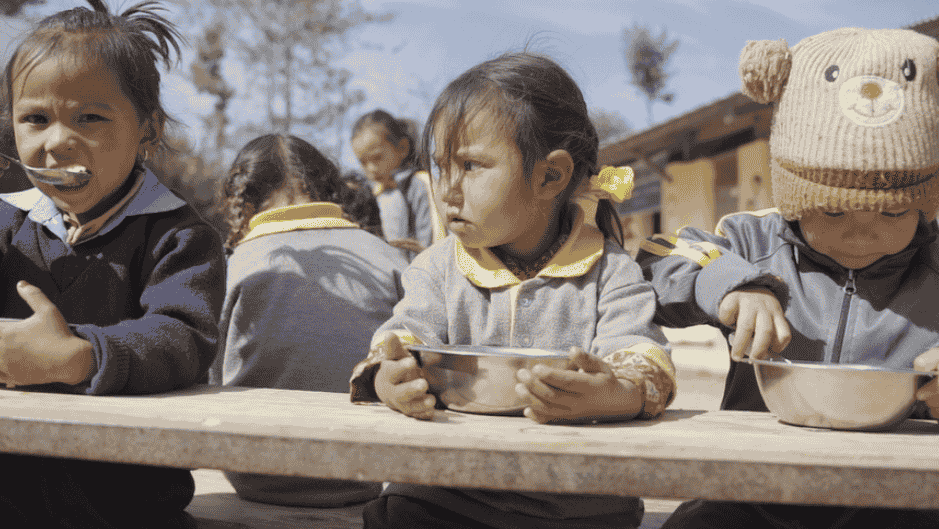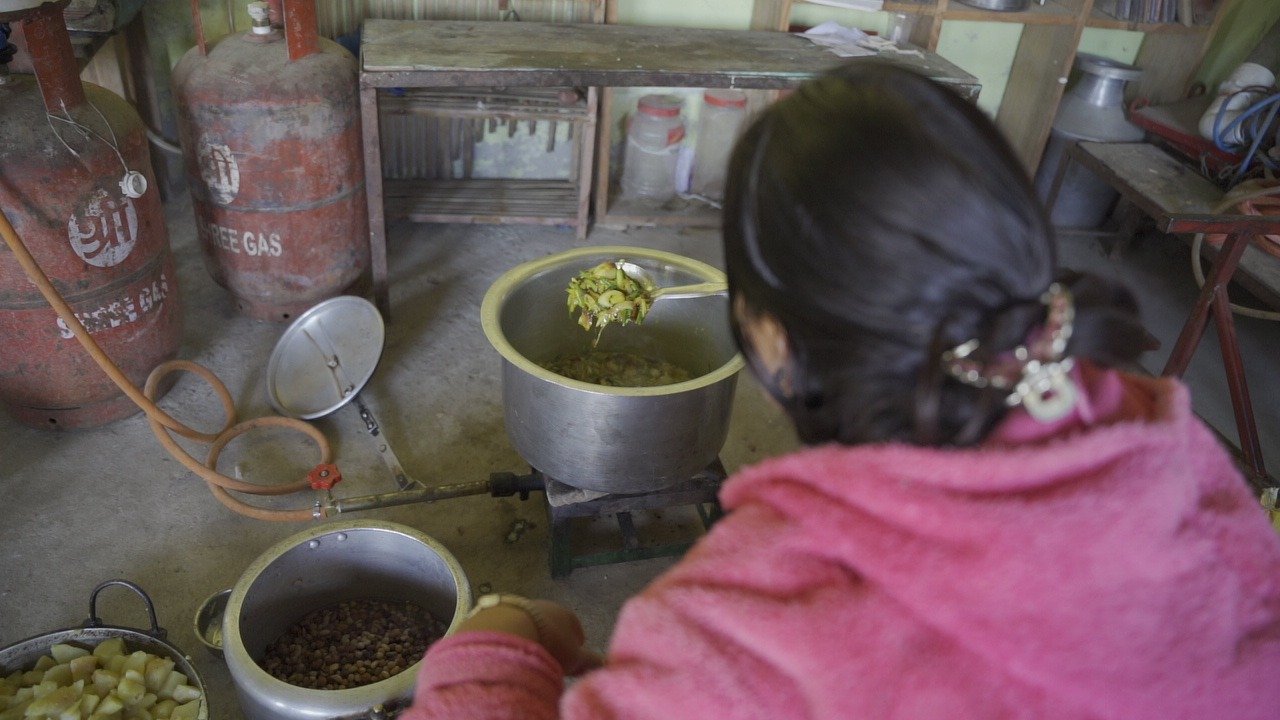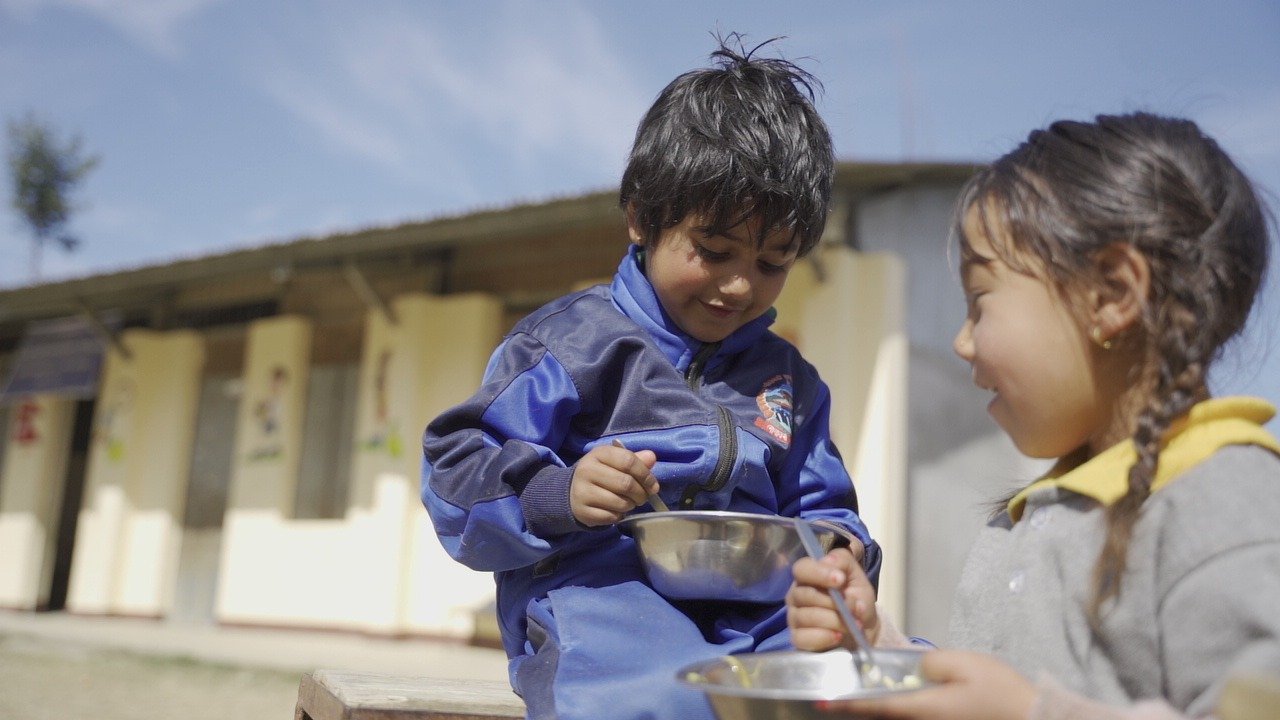Mid-day meals are transforming community schools – here’s why.
January 15, 2025
Namgyal Ghale
For many children, a third of their daily meals are consumed at school. In their formative years, this often means being exposed to unhealthy food has a lasting impact in their life. Well nourished children will be able to grow, learn, participate in the activities and stay well being from diseases1.
There are cases where community schools opt to distribute2 the government-allocated funds directly to parents instead of using the resources to prepare mid-day meals. Unfortunately, this often results in students opting for unhealthy, pre-packaged junk food rather than the nutritious, home-cooked meals they truly need.

The root of this issue lies in the lack of adequate infrastructure and the budgetary constraints that prevent community schools from hiring the necessary staff to manage and prepare meals. Without the right resources, many schools are unable to provide students with the healthy, balanced meals that are crucial for their overall well-being.
“For a long time, we struggled to manage the necessary kitchen infrastructure and utensils, which hindered our ability to provide proper meals for the students. As a result, students in grades ECD to five had to rely on unhealthy food from nearby hotels. For students in grades six to eight, there was no provision for mid-day meals at all. Many of these students travel long distances to attend school,’ says Sanu Maya Lo, Headteacher- Shree Saraswoti Basic School, Tikabhairav. She adds, “however, thanks to the support of the Social Lab in supplies of food items, we were able to build a proper kitchen and hire additional staff through the budget of mid-day meals”.

The Social Lab’s focus on providing quality, balanced meals has had a profound impact3. Not only has it led to improved health among the students, but it has also resulted in higher attendance rates. This initiative has proven that when we prioritize the well-being of our students, the benefits extend far beyond the classroom.
With the valuable insights gained from Social Lab’s Mid-Day Meal Intervention to community schools, it’s clear that providing nutritious and balanced meals within a limited budget is feasible with some innovative arrangements. Although the daily budget of 15 NPR per student is quite limited, schools can make it work by emphasizing whole foods, diversifying their menus, using locally available ingredients, and reducing food waste.
However, a more collaborative approach would involve active participation from parents. By rotating volunteer shifts to assist with school meals, contributing seasonal vegetables from their own fields, and collectively contributing a minimum amount towards the cost of mid-day meals, parents can play an essential role. This would not only help reduce the financial burden but also foster a sense of community ownership and responsibility, creating a more harmonious and participatory approach to school nutrition. This approach also is likely to minimize the chances of budget misuse by schools and local government. There are cases from Kalikot4 such as hiring private teachers from meals budgets and corruption related issues in mid-day meals at Madesh5. These are just an example of prevalent irregularities in mid-day meals.
Schools can establish manageable gardens that grow cash crops, helping to offset the cost of mid-day meals. Crops like onions, garlic, tomatoes, and green leafy vegetables are low-maintenance and cost-effective. In the beginning, parents can play an essential role in setting up the garden. Over time, senior students and teachers can take the lead, turning it into a valuable hands-on learning experience that fosters practical skills and cultivates a deeper respect for food. From a sustainability point of view, this initiative could be a game changing for school.

The introduction of mid-day meals has clearly resulted6 in increased motivation to attend school regularly, improved education quality, and a reduction in health-related issues.
(Ghale is project officer at Social Lab and an enthusiast development practitioner)
1 https://www.unicef.org/nepal/nutrition
2 https://kathmandupost.com/gandaki-province/2021/12/21/mid-day-meal-programme-ineffective-in-myagdi
3 https://samsaracreation.com.np/wp-content/uploads/2024/04/Impact-Report-EEP-2324-Final.pdf
4 https://kathmandupost.com/karnali-province/2022/08/19/mid-day-meal-budget-misused-in-kalikot
6 https://samsaracreation.com.np/wp-content/uploads/2023/12/Policy-Brief-II-MS.pdf

No responses yet